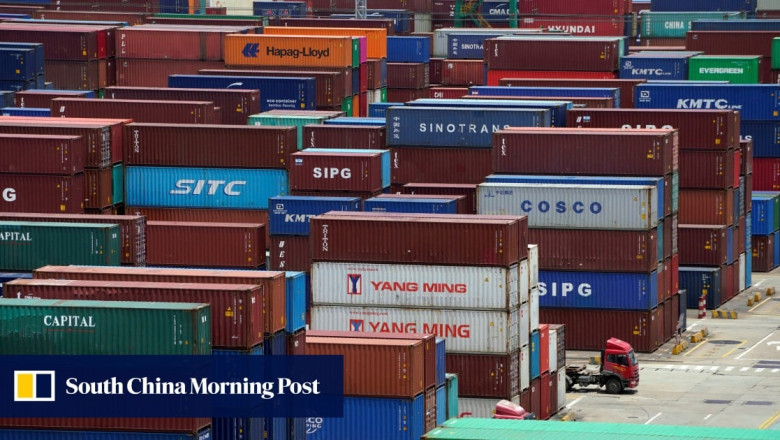
views
 Shipping containers at a port in Shanghai. Photo: Reuters
Shipping containers at a port in Shanghai. Photo: Reuters
AI, cross-border e-commerce are bright spots for Chinese internet firms in 2024, UBS says
- China’s e-commerce platforms, facing intense domestic competition, are ramping up overseas expansion, according to the Swiss bank
- AI also remains a main theme for Chinese internet companies, although monetisation continues to be a challenge, the bank says
Chinese internet firms can look to chase growth through international markets and artificial intelligence (AI) in 2024, according to UBS.
China’s e-commerce platforms, facing intense domestic competition with new rivals and short-video app operators, are ramping up overseas expansion, Kenneth Fong, head of China internet research at the Swiss investment bank, said in a briefing in Hong Kong on Tuesday.
Temu – owned by Pinduoduo parent PDD Holdings and based in Boston – and Shein – founded in the eastern Chinese city of Nanjing and headquartered in Singapore – were the two most-downloaded shopping apps on Apple’s US iOS store in the past 30 days, according to app analytics platform data.ai.
Selling competitively-priced products in the international market could give Chinese internet firms room to grow and boost their valuations, according to Fong.
The import and export value of China’s cross-border e-commerce industry reached 2.38 trillion yuan (US$333 billion) in 2023, up 15.6 per cent from the previous year, according to preliminary estimates published by the State Council Information Office earlier this month.
AI also remains a main theme for Chinese internet companies this year, according to Fong.
However, these companies continue to face challenges in generating income from their AI initiatives, as it is “not easy” to get Chinese consumers to pay for software, Fong said.
Adoption of AI solutions will also take time, as companies seek to cut costs and improve operational efficiency, he added.
“When the economy is bad, it’s difficult to ask for tens of thousands or millions of dollars from your boss to purchase an AI system,” Fong said.
Chinese technology stocks have extended their slump into 2024 amid persistent concerns over the country’s post-pandemic economic recovery and regulatory uncertainties.
Chinese tech stocks recouped some of their losses after Beijing last week pledged to strengthen its support for the “stable and healthy development of the capital market”.




















Comments
0 comment